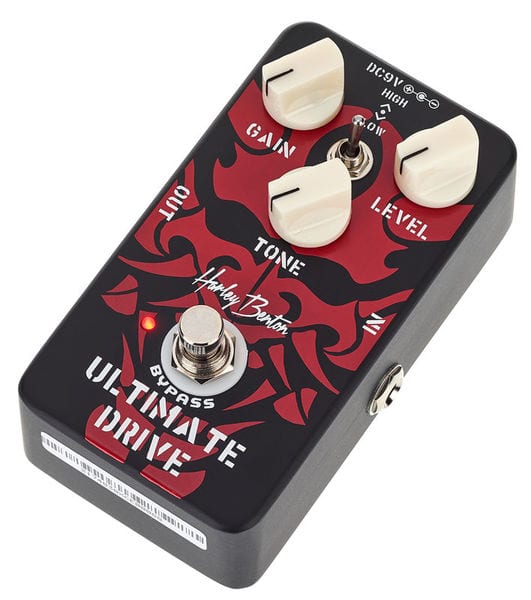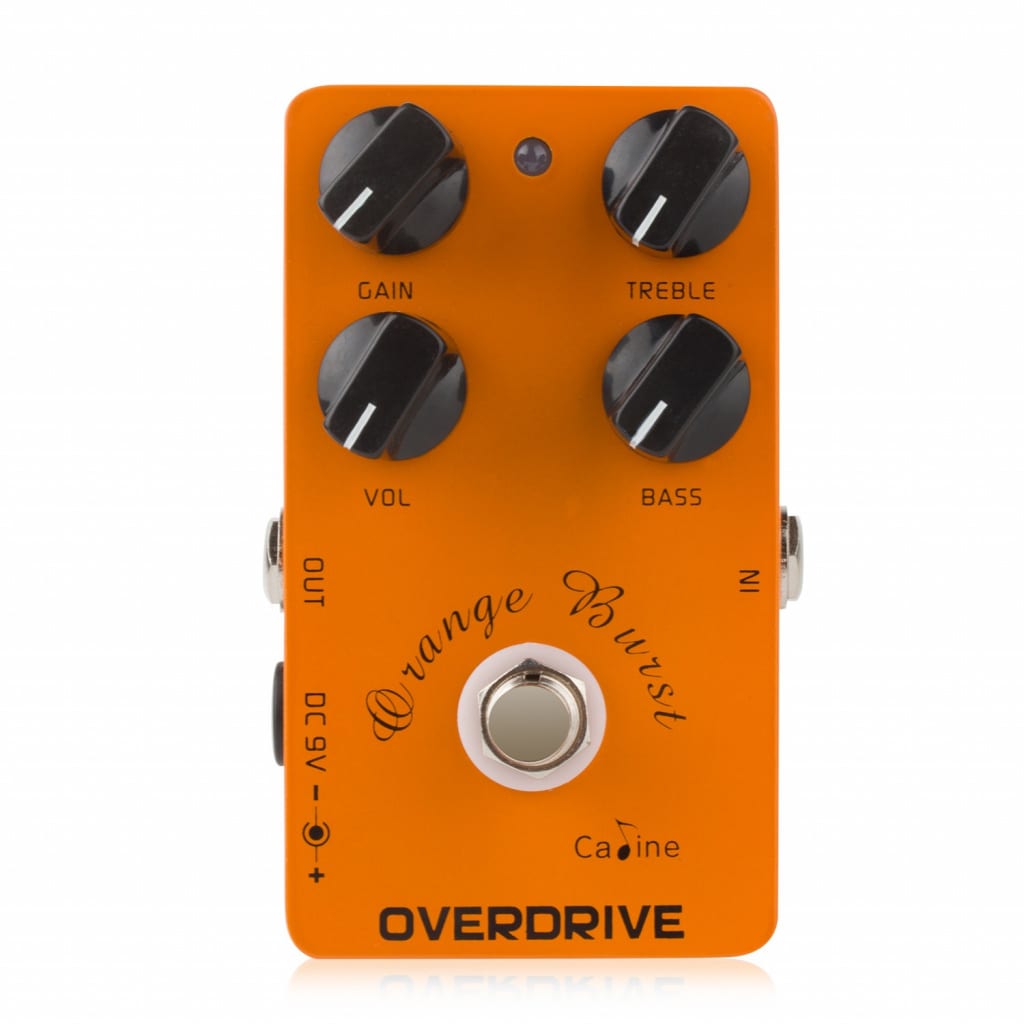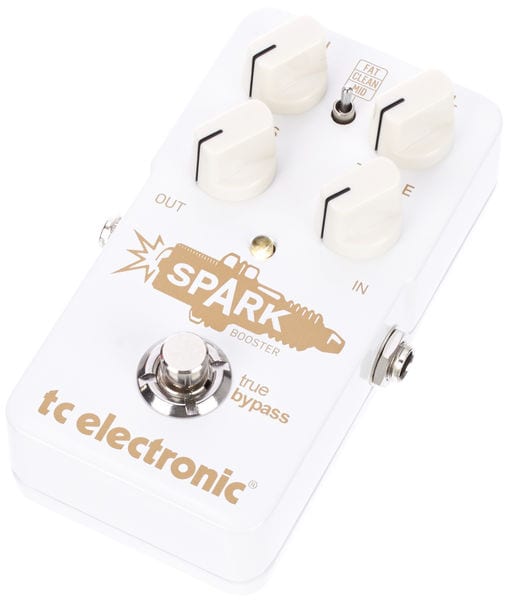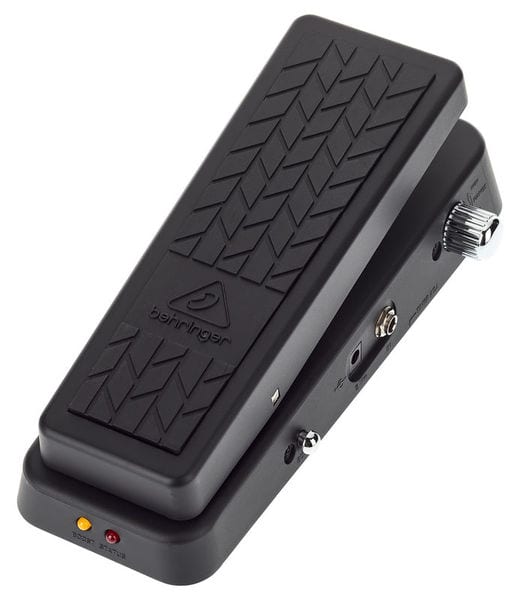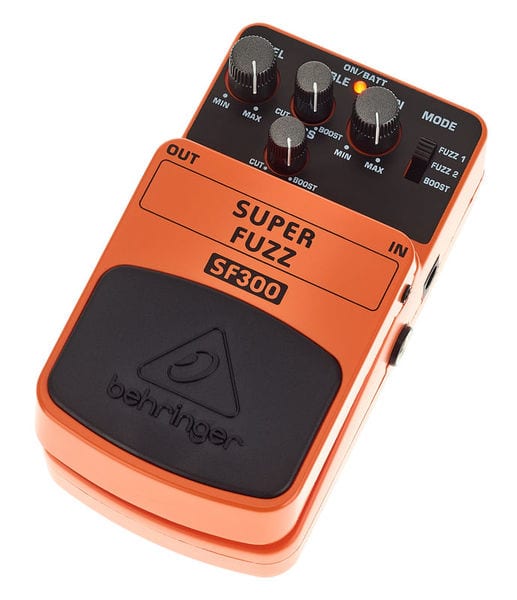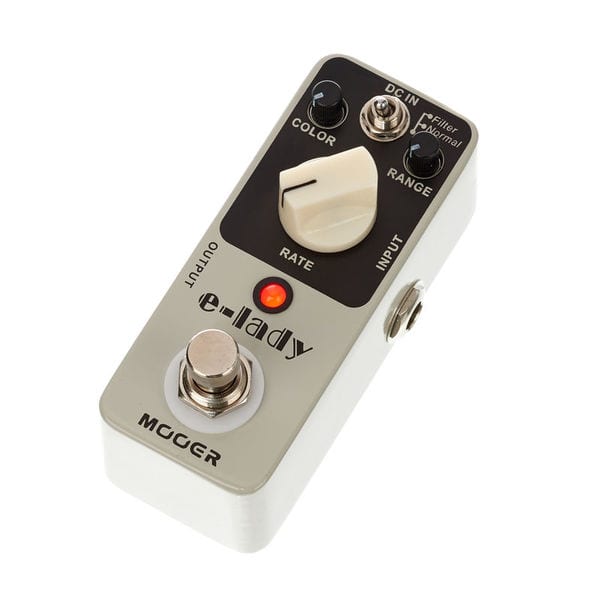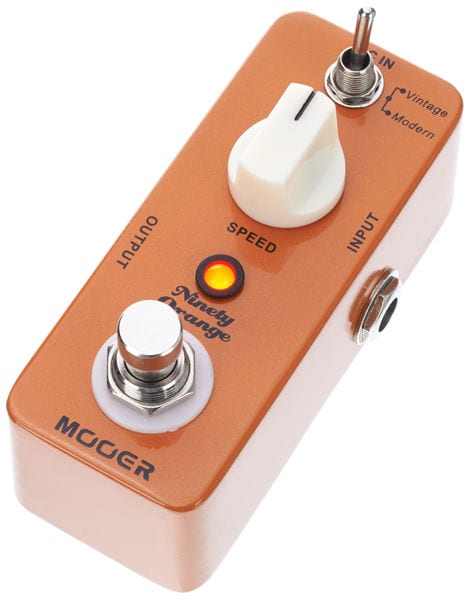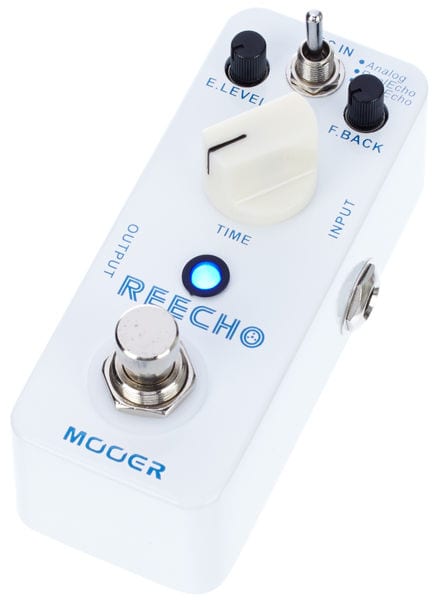This article is from an external source and may contain external links not controlled by Empeda Music.
gearnews.com

The world of guitar pedals has been inundated with copies of venerated vintage gear. Pedal makers large and small have been busy cloning effects that many players lust after, but cannot find or afford. And some have produced new, low-cost variations on classic effects we use everyday like overdrive, modulation and delays. And some are way, way cheaper than the gear they’re modelled on. At that price, they can’t sound any good, can they? Here’s the uncomfortable truth: some really do. All these cheap pedals cost around or under £60 or $80 and play like pedals that cost a whole lot more.
Is “vintage” all it’s cracked up to be?
But hang on, isn’t vintage gear always best? In fact, those old pedals can have serious drawbacks. Many were built using lower quality components. Pedals from the 60s or 70s often had poor enclosures. You’d be lucky if they would run from an external power supply. It’s also unlikely they had buffers or true-bypass switching.
Today, components are smaller, readily available and probably have far better tolerances than those used in old effects from half a century ago. Even cheap modern day switches are true-bypass. Now factor in mass production techniques like flow soldering and automation and you have a product that’s good quality, reliable and cheap.
Cheap pedals that sound great
Most of the pedals below try to emulate vintage pedals. The ones I have chosen get very close, to my ears at least. Many of them have better noise floors and can be used on modern day power supplies, unlike the original pedals they are based on. I’ve owned a lot of pedals over the years. Here are some of my favourite pedals costing around £60 or under. Some are clones of classic vintage effects, but there are a few modern circuits in there as well. And I own all of these, so I’m giving you my honest and personal opinion. Let’s dive in!
1. Harley Benton Ultimate Drive
This is the one pedal that everyone should either own, or have tried out at some point in their life. It costs a measly £27 and has some very organic, highly useable overdrive tones and I love it. The Harley Benton Ultimate Drive * has a simple Gain, Level and Tone knob layout with a switch that is labelled High/Low and it is true-bypass.
The pedal is essentially a clone of the Fulltone OCD pedal and nails all those classic rock tones. You can check this one out below in a side by side comparison with the OCD and you can hear it gets pretty close to the boutique pedal’s tone.You can run it from either a battery of a standard 9 volt power supply.
I’ve owned one for years and it is perfect for giving your amp a nice kick, it will do smooth and creamy overdrive for days and it is built in a solid aluminium enclosure which has never let me down.
2. Caline CP-18 Orange Burst Boost
This is another one of my favourite cheap drive/boost pedals and one that I use a lot. It is based on the BB Preamp, and it does a great job of providing really amp like drive tones without colouring your guitar tone. In fact the Caline CP-18 Orange Burst Boost is so good that I think you would be foolish not to try one, especially at an average street price of around £24!
I do own a BB preamp and the Orange Burst has its own thing going, yet there is no denying what it is based. You can get them dialled in very close to each other and they both do that low gain drive perfectly.
A simple control layout of Gain, Treble, Vol, and Bass is all you need to dial in your drive tones. The pedal is true-bypass, can run from either battery or external 9 volt power supply and comes in a aluminium enclosure. The Orange Crush goes from a subtle boost to a boost with a hint of fuzz. It is so good my brother keeps ‘borrowing’ mine and I really should buy another one. so he can keep it.
3. TC Electronic Spark Booster
Next up would be the TC Electronic Spark Booster * it costs a little more than the Ultimate Drive above and comes in at £41, so still well under £60. This little white boost pedal, plays very well with other overdrive pedals which makes it great for stacking drive tones and it is perfect for juicing an already cooking amp.
It has a a simple Bass, Treble, Gain and Level knob layout with a handy Fat/Clean/Mid toggle switch as well. Essentially as the name suggests, this is a boost pedal and one that can do either coloured or clean boost, which makes it super versatile.
Again, this pedal is true-bypass, runs from an external 9 volt power supply and is built very well in its solid enclosure. With 26 dB of boost and an active 2-band EQ section this little white pedal is a no brainer and well worth the money in my opinion. If you have never owned or used a boost, this is the one you should go for, as it is amazingly versatile and of a very high quality in my opinion.
4. Behringer HB01 Hell Babe
Everyone needs to experience the wah pedal at least once in their lifetime, whether you want to emulate Hendrix and Cream-era Clapton or you just want a static vocal filter for your lead tone. The wah pedal is way more than a one-trick pony and so I think the Behringer HB01 Hell Babe wah pedal deserves a mention at this point.
It is a full sized wah pedal, made from a very solid and robust plastic, no you won’t break it don’t worry. It really is solid.
It is fully optical control without mechanical controls and switches, so it doesn’t go scratchy and wear out like a conventional wah pedal. And at £41 I think this bargain priced wah has a lot to offer above and beyond just that. For example, you can adjust the Q-control for precise setting of the filter curve and it handles both bass and guitar signals, with a range control from 440 Hz to 250 Hz that you kick in via a switch at the heel position.
5. Behringer SF300 Super Fuzz
Every guitarist has to own at least one fuzz pedal in their lifetime and this Behringer SF300 Super Fuzz * would be the one that I would recommend. It can get you filthy fuzz tones that doom with the best of them. This bright orange pedal is based on a rare vintage Univox Super Fuzz circuit that’s very expensive – if you can find one! But is actually a direct clone of the Boss FZ-2 Hyper Fuzz which is again based on the Univox Super Fuzz circuit.
I’d highly recommend you take a look at this Josh Scott video in my previous article, as it goes further into the history of these Behringer clones.
At only £21.80 it is an absolute steal and sounds pretty much exactly the same as the vintage original it’s based on. This one has three modes, labelled Fuzz 1, Fuzz 2 and Gain, which equates to classic fuzz, grunge fuzz and gain boost. It also has knobs for Gain, a 2-band EQ and Level. The SF300 Super Fuzz can run from either a battery or external 9 Volt power supply.
6. Mooer E-Lady
Next on my list is the Mooer E-Lady * and this little pedal is essentially a clone of the vintage Electro Harmonix Electric Mistress flanger, in a mini pedal format. At £55 this pedal is an absolute bargain and it sounds so close to the original vintage flanger that I amazed they managed to squeeze it all into such a tiny pedal format, as the original was huge.
Pink Floyd Tones
The pedal has controls for Color, Range, and Rate. You can access modes labelled Normal/Filter from a mini toggle switch. Amazingly, it is true bypass. This tiny pedal will only run from an external power supply. If you’re chasing that David Gilmour Pink Floyd ’70s tone, then this little pedal can help you on your way.
7. Mooer Ninety Orange
I also own and would highly recommend the Mooer Ninety Orange*. This is Mooer’s take on the vintage MXR Phase 90 pedal from then ’70s. This little orange mini pedal covers all those classic phaser tones – and does a cracking job! At £52 it is great value for a well voiced, vintage-style phaser.
It has one knob labelled Speed and a toggle switch that selects either Vintage or Modern. You cannot go wrong with this little phaser pedal. Again, it is true bypass and will only run from an external 9 Volt power supply. I find a small, slow amount of phase can go a long way to thickening your tone and make it more interesting.
8. Mooer Reecho
Anyone would think I’m sponsored by Mooer, given how often that brand is popping up in this list. But I’m not. The company has just come up with some great pedals for people on a tight budget. If you need a good delay pedal, I recommend the Mooer Reecho*. It is a digital delay, but Mooer also has an analogue delay called the Ana Echo* for the same price. I don’t own that one, but I have used it and it’s also very nice.
Why choose the Reecho? My first digital delay was an old Boss DD-3, and for me the Reecho comes very close to the sound of that pedal. The Reecho comes in at £61 so it just creeps above my threshold, but for the money I think it is one to check out if you need a delay pedal and don’t have a lot to spend.
The Reecho has controls for Time, E.Level and F.Back. There’s also a switch to let you select Analog, Real Echo and Tape Echo modes. That makes it surprisingly versatile effect given its size. Like the other Mooer pedals above, it is true bypass and runs via an external 9 volt power supply.
Would you go budget?
So there you have it! These are my favourite pedals under the £60 mark. All are currently in production and easy to find. There is something for everyone there, and all of them will sit well in most pedal board setups.
What about your favourite budget pedals? Let me know what yours are in the comments below. Have you used any of the ones I’ve listed? What do you think of them?
*Affiliate links. Buying via an affiliate sends a small commission our way and helps keeps the lights on. But you pay the same price, regardless of whether we get a commission or not.
The post 8 cheap pedals every guitarist needs to try appeared first on gearnews.com.

